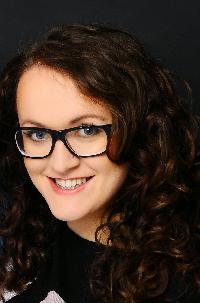| Pages in topic: [1 2] > | Poll: Which is the best way to improve your vocabulary? Thread poster: ProZ.com Staff
|
|---|
| | Allison Wright (X) 
Portugal
Local time: 13:32
| Which language? | Oct 2, 2011 |
The question on its own suggests improvement of vocabulary in one's mother tongue.
The answer options taken as a whole make it clear that the question refers to vocabulary in one's non-native languages. I would say that it is a combination of all the answers, plus active memorizing. One option missing here: Ask a native speaker what something means!
| | | | Stanislav Repin 
Russian Federation
Local time: 15:32
English to Russian
+ ...
I agree with Allison. To enrich your vocabulary you need to use all of the above methods, plus some other techniques that help you memorize new words. By just listening to native speakers or just keeping a file with new words you won't get far.
| | | | Simon Bruni 
United Kingdom
Local time: 13:32
Member (2009)
Spanish to English
| Listening to native speakers | Oct 2, 2011 |
Obviously all of the above contribute, but in my experience not just vocabulary but also every other feature of language is most effectively learned through exposure to native speakers. Of course this also includes "native writers".
[Edited at 2011-10-02 10:10 GMT]
| | |
|
|
|
Obviously all of those depending on context and the way you brain works. For general vocabulary, listening and reading. Specific vocabulary also...
Exposure is the key : listening, hearing, reading, writing, general and specific in order to be able to speak, read and write generally and specifically oneself.
| | | | Heike Kurtz 
Germany
Local time: 14:32
Member (2005)
English to German
+ ...
| Newspapers, movies, TV in source language(s) | Oct 2, 2011 |
... and holidays of course. We are very fortunate: nowadays these materials are readily available almost everywhere.
| | | | | All of the above | Oct 2, 2011 |
I agree with all of them but what I most do is when I hear/read new vocab, I write it down in a mini-dictionary and make an effort to use it when I next speak to natives. Sometimes it can seem a little artificial to steer conversation towards an opportunity to use a particular word or expression, but don't we do that anyway when we have an idea we want to express??
| | | |
Ours is a profession that needs to be permanently updated/upgraded, therefore we need as many resources as possible.
| | |
|
|
|
| all of the above | Oct 2, 2011 |
Simon Bruni wrote:
Obviously all of the above contribute, but in my experience not just vocabulary but also every other feature of language is most effectively learned through exposure to native speakers. Of course this also includes "native writers".
[Edited at 2011-10-02 10:10 GMT]
It depends on personality as well. For example I know I have my visual memory better developed than my auditory memory. This means I would rather memorize a new word when I see it written than when I hear it.
On the other hand, one of my friends studied in the same class with me at university and she is still at a B2 level or similar. Our courses were concentrated on reading and writing and less on listening and speaking. She went for only 2 months to Spain and has her spoken Spanish also at a B2 level probably. Her auditory memory is probably very well developed. Also with English... she speaks it very well, with an amazing UK accent, but makes spelling mistakes.
In my case, when I try to remember a word, I visualize it written. I literally imagine the word, letter by letter.
| | | | Patricia Charnet
United Kingdom
Local time: 13:32
Member (2009)
English to French
but I would say that I have been living in the UK for 24 years now so I'm in a position where I cannot be a "true" English native speaker (even though people don't always notice it!) and at the same time I've got to "update" my command of French with recent expressions in vogue (to avoid be archaic)
listening to various media (TV, radio) or specialised media (business newspapers and magazines) gives you a certain type of vocabulary
listening to native speakers and co... See more but I would say that I have been living in the UK for 24 years now so I'm in a position where I cannot be a "true" English native speaker (even though people don't always notice it!) and at the same time I've got to "update" my command of French with recent expressions in vogue (to avoid be archaic)
listening to various media (TV, radio) or specialised media (business newspapers and magazines) gives you a certain type of vocabulary
listening to native speakers and copying their phraseology gives you another type of vocabulary
but in fact you end up using some expressions over other expressions as a matter of choice
sometimes I hear an English native speaker saying a turn of phrase which I never use but fully understand, and I think "hey that nicely said that - spot on!" and then I never remember it or it takes ages before I hear it again and adopt it within my selection - sometimes it can takes ages before I can use it if I've not forgotten the original expression in the first place!
other times I like a new turn of phrase in French which I find better suited, sometimes I've got to update some new terms which are favoured other older ones even though the older terms were better, sometimes I've got to select the term according to the target audience i.e. in Québec they prefer some terms which the European French speakers do not take
all in all you can improve your vocabulary or terminology, but you may end up just swapping a few terms for others
It's not clear cut black and white in my opinion but an array of shades of grey ▲ Collapse
| | | | jmorri
United Kingdom
Local time: 13:32
French to English
+ ...
| A blend of the above | Oct 2, 2011 |
Like almost everyone else, I integrate all the methods mentioned; if I watch a show/listen to music/ in person hear someone say something new I make a note of it, mental,handwritten or in a file. I do the same if I see something in print; either look the word up right away and make a note or underline it and come back to it later.
That said, I chose "listening to native speakers..." above all because things I hear engrave themselves into my memory more so than things I read, a lot ... See more Like almost everyone else, I integrate all the methods mentioned; if I watch a show/listen to music/ in person hear someone say something new I make a note of it, mental,handwritten or in a file. I do the same if I see something in print; either look the word up right away and make a note or underline it and come back to it later.
That said, I chose "listening to native speakers..." above all because things I hear engrave themselves into my memory more so than things I read, a lot of the time.
Also, I think you can get a good grasp colloquial language from TV/radio, etc. It depends on what you are listening to, e.g., watching Eastenders (British soap) might give you a better grasp of how typical Londoners speak than an episode of Newsnight (news discussion show), though the truth is somewhere in between. ▲ Collapse
| | | | Parrot 
Spain
Local time: 14:32
Spanish to English
+ ...
| Other: living it | Oct 2, 2011 |
One of the best observation viewpoints in my experience is playing with native kids and hanging out with young people. Not only do you get updated on new expressions, you also get it from the gut. This has led to my being a great believer in language immersion. Maybe it's a vain chase after the "native" window that supposedly closes at the age of 10, but I do remember how much easier it was to associate words with the immediate environment. (I had the advantage of early and multiple exposures).<... See more One of the best observation viewpoints in my experience is playing with native kids and hanging out with young people. Not only do you get updated on new expressions, you also get it from the gut. This has led to my being a great believer in language immersion. Maybe it's a vain chase after the "native" window that supposedly closes at the age of 10, but I do remember how much easier it was to associate words with the immediate environment. (I had the advantage of early and multiple exposures).
Evidently, it's not the same for an adult -- we tend to process concepts second-hand, not to mention be fairly happy with the results -- but lived language is the kind of language learning that really stays with me. ▲ Collapse
| | |
|
|
|
Williamson 
United Kingdom
Local time: 13:32
Flemish to English
+ ...
| All of the above | Oct 3, 2011 |
The advise of one of the best interpreter schools: all of the above+ living it.
| | | | Thayenga 
Germany
Local time: 14:32
Member (2009)
English to German
+ ...
| A combination plus... | Oct 3, 2011 |
Actually the best way is a combination of all mentioned choices, plus PRM (Purpose Related Memory) which works in a "words linked to a specific experience/situation" . And, of course, the best way to learn new words is by actively living the non-native language. 
| | | | John Cutler 
Spain
Local time: 14:32
Spanish to English
+ ...
All of the above and for me, personally, watching TV. I enjoy watching news and documentaries anyway, so even though I didn't know a word of Spanish when I came to Spain and had never even heard of Catalan, I turned on the TV and put my listening skills into practice.
I actually avoid watching too many programs that have been translated and dubbed into Spanish or Catalan, because they often times use expressions or sentence structures that "sound" like translations i.e., not complet... See more All of the above and for me, personally, watching TV. I enjoy watching news and documentaries anyway, so even though I didn't know a word of Spanish when I came to Spain and had never even heard of Catalan, I turned on the TV and put my listening skills into practice.
I actually avoid watching too many programs that have been translated and dubbed into Spanish or Catalan, because they often times use expressions or sentence structures that "sound" like translations i.e., not completely natural.
As for listening to native speakers, I also learned from the beginning who to use as a language model and who not to. It's best not to learn from just anyone. Let's be realistic, not everyone can speak their own language very well. ▲ Collapse
| | | | | Pages in topic: [1 2] > | To report site rules violations or get help, contact a site moderator: You can also contact site staff by submitting a support request » Poll: Which is the best way to improve your vocabulary? | Protemos translation business management system | Create your account in minutes, and start working! 3-month trial for agencies, and free for freelancers!
The system lets you keep client/vendor database, with contacts and rates, manage projects and assign jobs to vendors, issue invoices, track payments, store and manage project files, generate business reports on turnover profit per client/manager etc.
More info » |
| | Wordfast Pro | Translation Memory Software for Any Platform
Exclusive discount for ProZ.com users!
Save over 13% when purchasing Wordfast Pro through ProZ.com. Wordfast is the world's #1 provider of platform-independent Translation Memory software. Consistently ranked the most user-friendly and highest value
Buy now! » |
|
| | | | X Sign in to your ProZ.com account... | | | | | |
















